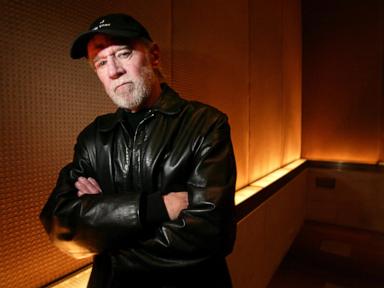The estate of George Carlin has initiated legal action against the media company responsible for a fabricated hour-long comedy special allegedly utilizing artificial intelligence to replicate the late comedian’s style and content.
The lawsuit, filed in federal court in Los Angeles on Thursday, seeks an order from the judge instructing the podcast outlet Dudesy to promptly remove the audio special titled “George Carlin: I’m Glad I’m Dead.” In this special, an AI-generated synthesis of Carlin provides commentary on current events. George Carlin passed away in 2008.
Kelly Carlin, George Carlin’s daughter, conveyed in a statement that the production is “a poorly-executed facsimile cobbled together by unscrupulous individuals to capitalize on the extraordinary goodwill my father established with his adoring fanbase.”

The suit, alleging violations of Carlin’s right of publicity and copyright, names the Carlin estate and its executor, Jerold Hamza, as plaintiffs. The defendants listed are Dudesy and podcast hosts Will Sasso and Chad Kultgen.
The lawsuit asserts, “None of the Defendants had permission to use Carlin’s likeness for the AI-generated ‘George Carlin Special,’ nor did they have a license to use any of the late comedian’s copyrighted materials.”
As of now, the defendants have not provided a response to the lawsuit, and it remains unclear if they have secured legal representation. Attempts to reach them for comment were unsuccessful.
The audio special, posted on YouTube on Jan. 9, begins with a voiceover from the AI engine employed by Dudesy, claiming to have listened to 50 years of Carlin’s material and attempted to mimic his voice, cadence, attitude, and contemporary subject matter. The plaintiffs contend that if this is indeed the method used, it constitutes a violation of Carlin’s copyright.
In a podcast episode accompanying the special, Sasso and Kultgen introduce and comment on the mock Carlin, with Sasso affirming that it sounded “exactly like George Carlin.” This lawsuit is one of the initial legal actions anticipated in the ongoing battle against the unauthorized use of celebrity images and likenesses, particularly in the context of artificial intelligence.
Josh Schiller, an attorney for the plaintiffs, emphasized in a statement that the “case is not just about AI; it’s about the humans that use AI to violate the law, infringe on intellectual property rights, and flout common decency.”


